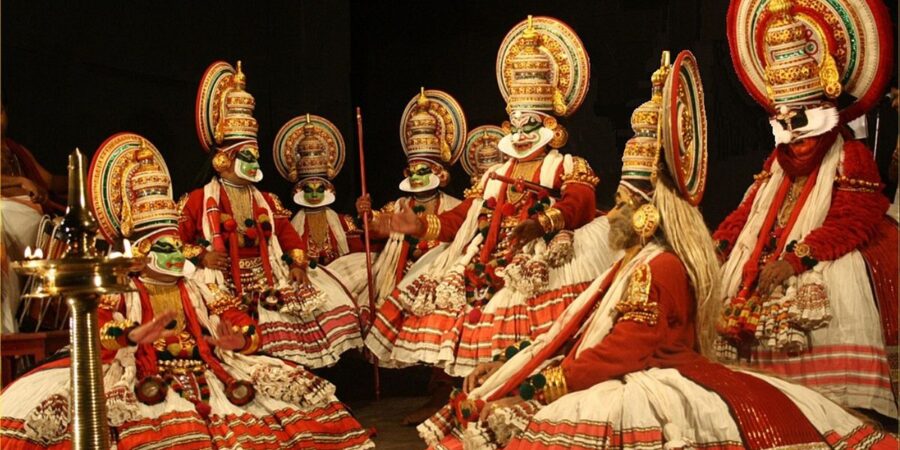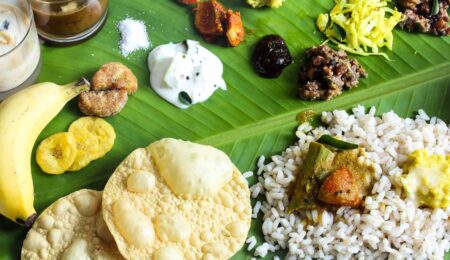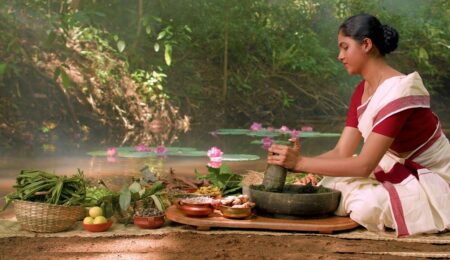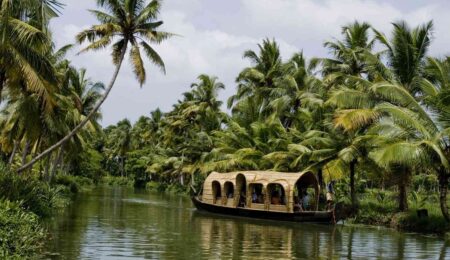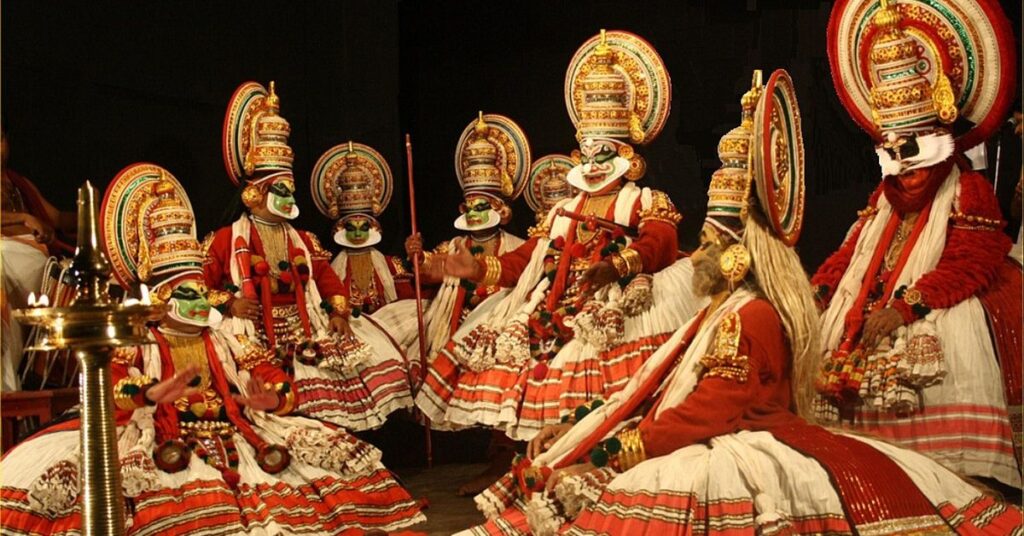 Kerala, which is sometimes referred to as “God’s Own Country,” is a place that is characterised by stunning scenery, rich customs, and a cultural tapestry that is so distinctive that it has captivated people from all over the world. Kerala, which is located in the southwestern region of India, has a cultural legacy that is a colourful mosaic of many influences. These influences include indigenous customs, religious activities, and exchanges with external trade. The purpose of this article is to dig deeply into the complexities of Kerala’s culture by investigating its history, art forms, festivals, food, and the persistent spirit that distinguishes this interesting province.
Kerala, which is sometimes referred to as “God’s Own Country,” is a place that is characterised by stunning scenery, rich customs, and a cultural tapestry that is so distinctive that it has captivated people from all over the world. Kerala, which is located in the southwestern region of India, has a cultural legacy that is a colourful mosaic of many influences. These influences include indigenous customs, religious activities, and exchanges with external trade. The purpose of this article is to dig deeply into the complexities of Kerala’s culture by investigating its history, art forms, festivals, food, and the persistent spirit that distinguishes this interesting province.
The Cultural Heritage of Kerala, Woven Together Through History
Cultural inheritance in Kerala is strongly anchored in the state’s historical history, which has been affected by a wide variety of influences over the course of several centuries. The establishment of major kingdoms, such as the Cheras, Cholas, and Pandiyas, is characterised by the region’s ancient history. These kingdoms were essential in the formation of Kerala’s early socio-political environment, and their ascent to power is particularly noteworthy. An indelible impact was left on the culture of the region as a result of the commercial connections that these kingdoms developed with a variety of other cultures, including as the Romans, Greeks, and Arabs.
Further enrichment of Kerala’s cultural variety was brought about by the introduction of Christianity, Islam, and, subsequently, Hinduism. These religions were brought together in a syncretic manner, which resulted in the formation of a distinctive community harmony that is a distinguishing characteristic of Kerala’s cultural ethos. Not only did the old spice trade bring merchants from other areas to the coasts of Kerala, but it also contributed to the region’s cosmopolitan viewpoint, which is one of the things that sets it apart from other places.
Kerala’s Craftspeople and Artists’ Traditions
It is safe to say that Kerala is the birthplace of a wide variety of vivid art forms that have endured the test of time. Traditional music and dance styles, as well as classical dance styles, are only two examples of the state’s extraordinary cultural riches. Kathakali is currently considered to be one of the most well-known genres of classical dance that originated in Kerala. This ancient art form mixes dance, music, and theatre, and it frequently depicts legendary stories via the use of lavish costumes and exquisite facial paint. Kathakali is a mesmerising sight that encapsulates the spirit of Kerala’s creative talent. It is characterised by expressive gestures, vibrant costumes, and rhythmic movements.
A elegant dance style that is characterised by its flowing movements and emotive narrative is known as Mohiniyattam. This is another art form that is worthy of mention. In many cases, it is performed by a single female dancer dressed in traditional garb, who uses subtle facial expressions and hand movements to depict a wide range of emotions. Both Mohiniyattam and Kathakali are not only performances; rather, they are living traditions that represent the cultural history and values of the people.
There is no doubt that Kerala has made a significant contribution to the field of music. Keralites have a soft spot in their hearts for Carnatic music, which has its origins in the devotional works of renowned saints. Also, the state has a long and illustrious history of folk music, which is characterised by a wide range of regional variants that honour the essence of ordinary life. Among the traditional instruments that contribute significantly to the formation of Kerala’s aural environment are the chenda, the mridangam, and the violin instruments.
Celebrations are a kaleidoscope of colours and a manifestation of devotion.
Kerala’s festival calendar is a kaleidoscope of brilliant colours, resonating with the spirit of dedication and social peace. Many festivals are held around the state. The Onam festival, which is the most renowned event in the state, is a harvest festival that draws people together in a joyful celebration of prosperity and unity. The beautiful flower carpet known as Pookalam, traditional sports like as Vallamkali (boat racing), and the magnificent feast known as Onasadya are all essential components of the celebrations that take place during the Onam festival.
The Thrissur Pooram is a temple festival that takes place in the town of Thrissur. It is another great show that brings people together. It is a stunning performance that includes processions, elephants that are confined in cages, and traditional percussion groups that vibrate through the air. The Thrissur Pooram festival is one of the most intriguing festivals in Kerala because of the energy and passion that surrounds it the entire time.
Eid, Christmas, and Vishu are just few of the holidays that are celebrated with equal fervour and grandeur in Kerala, which is a reflection of the religious variety that exists in the state. The distinctive custom of temple festivals in the state, in which communities join together to celebrate their common history, exemplifies the cultural unity that is not limited by religious barriers.
A Gastronomic Journey Through Kerala, Filled with Delectable Culinary Experiences
The gastronomic landscape of Kerala is a monument to the geographical diversity of the state as well as the historical influences that have shaped it. Coconut, spices, and fresh seafood are used extensively in the cuisine, which is a defining characteristic of the cuisine. Sadya, a traditional feast that is served on a banana leaf, is a gastronomic extravaganza that features a multitude of vegetarian meals, each of which has its own unique flavour and method of preparation. The Kerala Sadhya, which is considered to be the state’s most famous meal, is a great example of the culinary prowess of the region.
Because Kerala has such a long coastline, seafood is given a significant amount of importance in the state’s cuisine. Whether it be the spiciness of Fish Curry and Meen Pollichathu or the scrumptiousness of Kerala Prawn Curry, the state’s culinary expertise is demonstrated by the wide range of seafood dishes and the exceptional quality of these meals. The use of coconut milk and a one-of-a-kind combination of spices gives Kerala’s non-vegetarian specialties a signature flavour that sets them apart from other dishes.
The ubiquitous appam, which is a form of pancake cooked with fermented rice batter, is a typical complement to a wide variety of cuisines that are served throughout Kerala. Appam exemplifies the spirit of Kerala’s culinary expertise since it is a dish that goes exceptionally well with a wide variety of gravies and curries. Kerala’s food is a sensory joy for anybody who is lucky enough to participate in its gourmet delights since it is characterised by the scent of freshly ground spices and the sight of colourful dishes that are rich in flavour.
The Natural Beauty of Kerala, Extending Beyond Its Backwater Locations
The natural beauty of Kerala is frequently romanticised in popular culture, and there is a strong reason for this treatment. Backwaters are a network of interconnecting canals, rivers, and lagoons that wind their way through the heart of the state of Kerala. These backwaters not only provide a lovely scenery for the people of Kerala, but they also provide them with a distinctive way of life. These canals are navigated by houseboats, which are referred to as Kettuvallams in the local language. These boats provide a tranquil and immersive experience of the backwaters.
A breathtaking background for Kerala’s scenery is provided by the Western Ghats, which are included as a UNESCO World Heritage Site. The Western Ghats are a paradise for those who are interested in nature and adventure equally because of the abundant vegetation, the wide variety of flora and animals, and the waterfalls that cascade down the mountains. As a result of their cool environment and spectacular views, the hill stations of Munnar, Wayanad, and Thekkady provide a welcome relief from the oppressive heat of the coastal region.
The eco-friendly measures that Kerala has implemented are a clear indication of the state’s dedication to sustainable tourism. These initiatives ensure that the natural beauty of Kerala will be preserved for future generations. Homestays and other community-based projects are examples of responsible tourism practices that serve to give guests with an authentic experience while also making a positive contribution to the well-being of the communities in which they are staying.
Traditional and contemporary elements come together to form Kerala’s unique identity.
It is possible to observe the healthy coexistence of tradition and modernity in the midst of the cultural and natural splendour that Kerala possesses. The state has maintained its cultural identity while also embracing technological breakthroughs in the fields of education, healthcare, and technology. The priority that Kerala places on education and intellectual development is shown in the state’s exceptional literacy rate, which ranks among the highest in India.
Traditional healing traditions such as Ayurveda are combined with contemporary medical facilities in Kerala’s healthcare system, which is frequently praised for its capacity to provide excellent treatment. The achievements of the state, which include a comprehensive primary healthcare system and effective attempts to control communicable illnesses, are evidence of the state’s dedication to the public’s health.
Despite the fact that Kerala is changing along with the rest of the globe, the spirit of the country continues to be profoundly ingrained in its cultural legacy. A sense of pride and belonging is fostered among the people by the continued appreciation of the traditional art forms, festivals, food, and natural beauty that have been passed down through generations. In order to ensure that the essence of “God’s Own Country” continues to be timeless and compelling, the culture of Kerala is able to adapt and change, which is the source of its resilience.
In conclusion, the culture of Kerala is a mesmerising combination of history, art, festivals, food, and a strong connection to the natural surrounds of the state. The cultural wealth of the state is a tribute to its dynamic history, which was influenced by influences from a variety of different civilizations and faiths on the state. In Kerala, the arts, whether it be the passionate Kathakali dance or the heartfelt tones of Carnatic music, are not only performances; rather, they are living traditions that have been passed down from generation to generation as well.
During the festivals of Kerala, which are characterised by lively festivities and communal harmony, the variety and togetherness that characterise the area are brought to light. There is a gourmet trip into the heart of Kerala that may be experienced through the culinary pleasures, which feature distinctive flavours and fragrant spices. A canvas of natural beauty that captivates the soul is provided by the backwaters and the lush sceneries around the area.
The ethos of Kerala is one of synthesis, where tradition and modernity coexist in a peaceful manner alongside one another. The dedication of the state to education, healthcare, and environmentally responsible tourism demonstrates a forward-thinking perspective while simultaneously protecting the state’s unique character. As Kerala continues to develop, its cultural tapestry continues to be a source of inspiration and awe, drawing people from all over the world to immerse themselves in the enchantment of the “God’s Own Country.”


